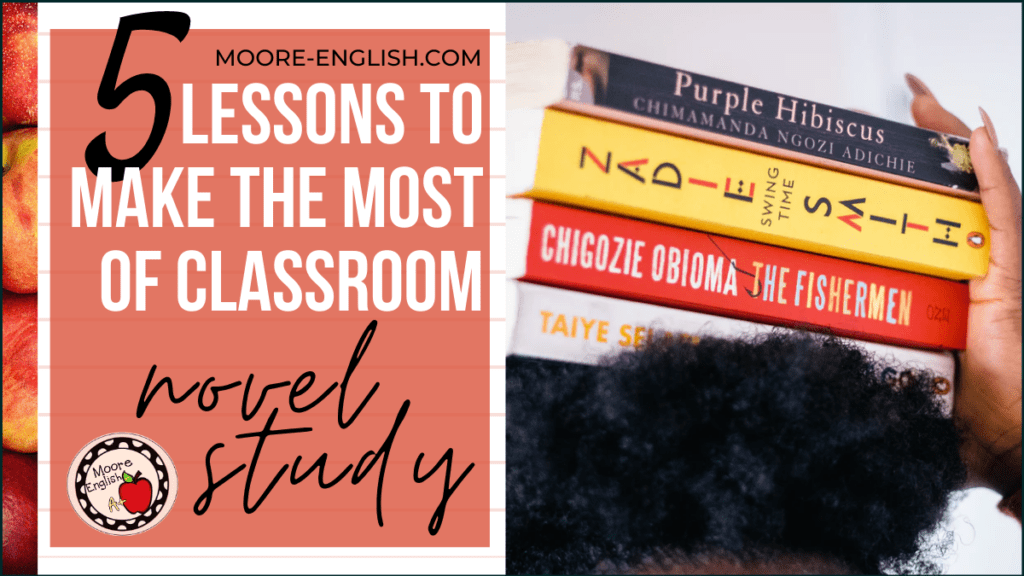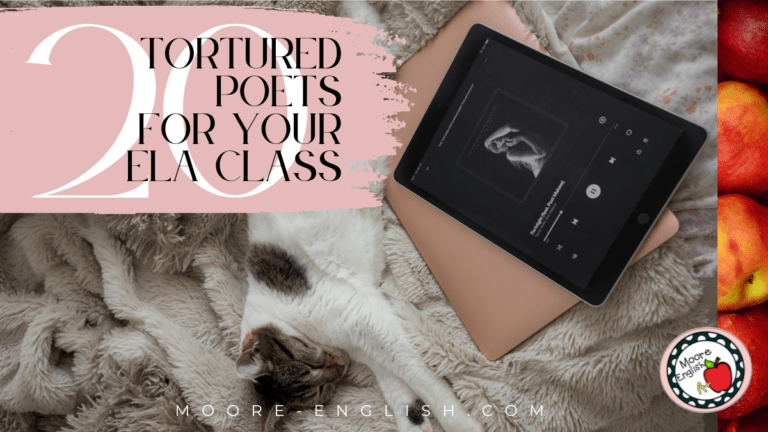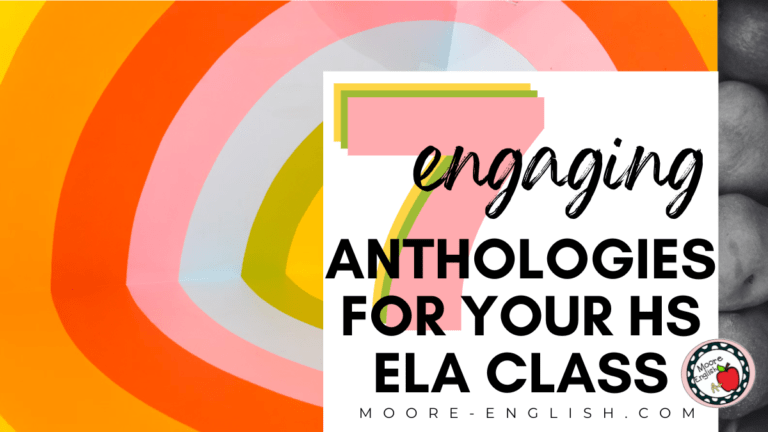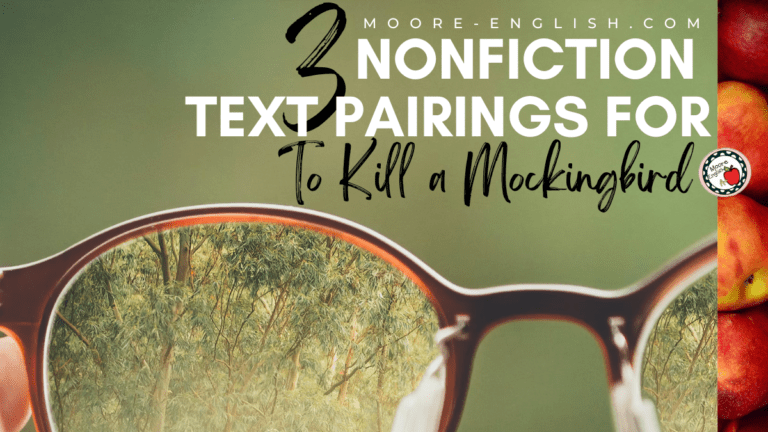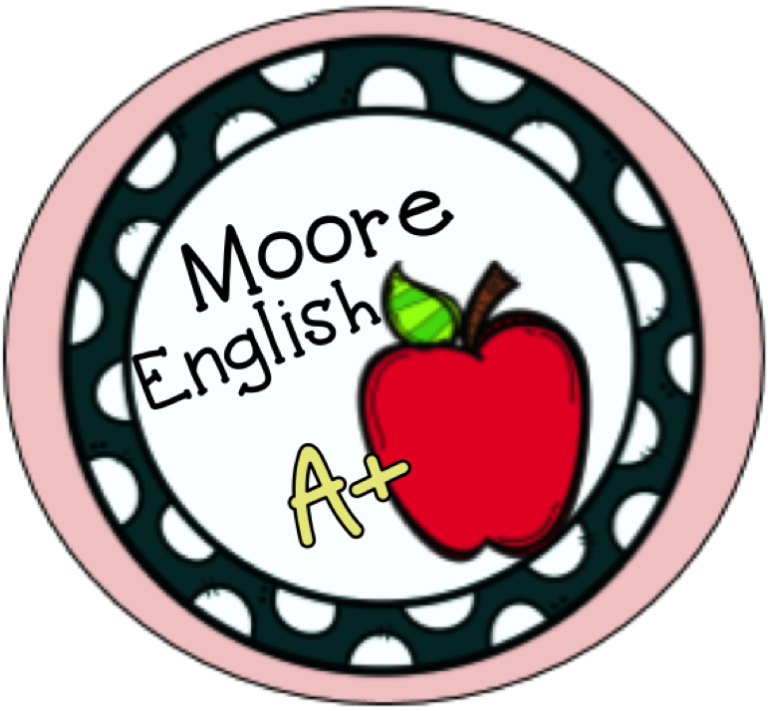Novel study is essential part of language arts instruction. Different teachers may approach novel study from different pedagogical perspectives. Regardless of how you approach classroom novel study, reading novels in the classroom can provide teachers and students with the opportunity to focus on specific skills.
This post this post may contain affiliate links. Please read the Terms of Use.
Novel Study as a Window into Author’s Craft
Author’s craft is part of all literature. But a novel is such a tremendous undertaking that it requires writers to bring all their talents to bear. For students and teachers, this provides an opportunity to study author’s craft in all its forms.
Furthermore, a novel represents a unified effort. In the classroom, we recognize this unified effort by discussing theme. Analyzing author’s craft helps students appreciate how every move an author makes complements their purpose.
To begin, the length of novels makes them perfect opportunities to discuss plot structure. In fact, plot diagrams are one of my favorite ways to use anchor charts in the classroom. Visualizing the text helps students evaluating how the author uses the plot structure to “hold” and support the theme. These task cards are some of my favorite tools for analyzing plot and conflict.
Novel Study Creates Productive Discussion
This may seem like an unusual skill set to teach with a novel study. But a well-chosen novel study is usually high interest and creates controversy or connection for student readers. While students absolutely can and should discuss other forms of literature like short stories and poetry, the length of novel study allows students to participate in multiple discussions over a single text.
With this in mind, using novel studies becomes a good way to establish, refine, and practice civil and productive class discussions.
Begin the process of classroom discussion by establishing discussion norms. As a new teacher, establishing norms was something at which I scoffed. Boy, was I wrong. Establishing discussion norms helps students take ownership of their learning and provides a sense of safety through predictability. Here are some details to consider when establishing discussion norms:
- Firstly, make clear what your role as a teacher will be. Will you be a silent listener? A full participant? An occasional traffic guard?
- Secondly, determine how students should handle “dead air” and repetitive or circular conversations
- Finally, establish how students should respond to disagreements and productively express diverse perspective
Finally, make room in discussion for reflection. At the end of a discussion, create time for metacognition. Then, encourage students to reflect on which parts of the discussion worked and which could use improvement. This is really the most important part of using novel study to teach civil discussion. Providing students the chance to continually revise their expectations for classroom discussions emphasizes growth mindset. And the necessity of regular conversations during novel study makes them a great place for practicing these skills.
Responding to Literature
Finally, classroom novel study provides opportunities for students to practice responding to literature. Writing and reading are complementary skills. For this reason, teachers can use the length of a novel study to help students repeatedly practice responding to literature.
At the beginning of a novel study, students might begin with text-self connections and first-impressions book reviews. Low-stakes writing like journals can help students get in the habit of responding to literature.
Toward the middle of the novel, as the theme and author’s purpose begin to take shape, students can move to shorter, more structured writing. Students can begin finding evidence to support claims about author’s craft.
At the end of the novel, students can move to more complete written analysis. Students can use their shorter writings to buttress longer written analysis. Longer analysis can take the form of written commentary, literary criticism, or traditional essays and constructed responses.
Here are some other posts and resources for novel study in your classroom:
- Paired Texts for teaching To Kill a Mockingbird
- To Kill a Mockingbird Synthesis Bundle
- Gatsby Paired Texts: Ideas and Inspiration
- The Great Gatsby Synthesis Bundle
- 8 Paired Texts for Teaching Things Fall Apart
- Things Fall Apart Synthesis Bundle


Photo by Suad Kamardeen on Unsplash

